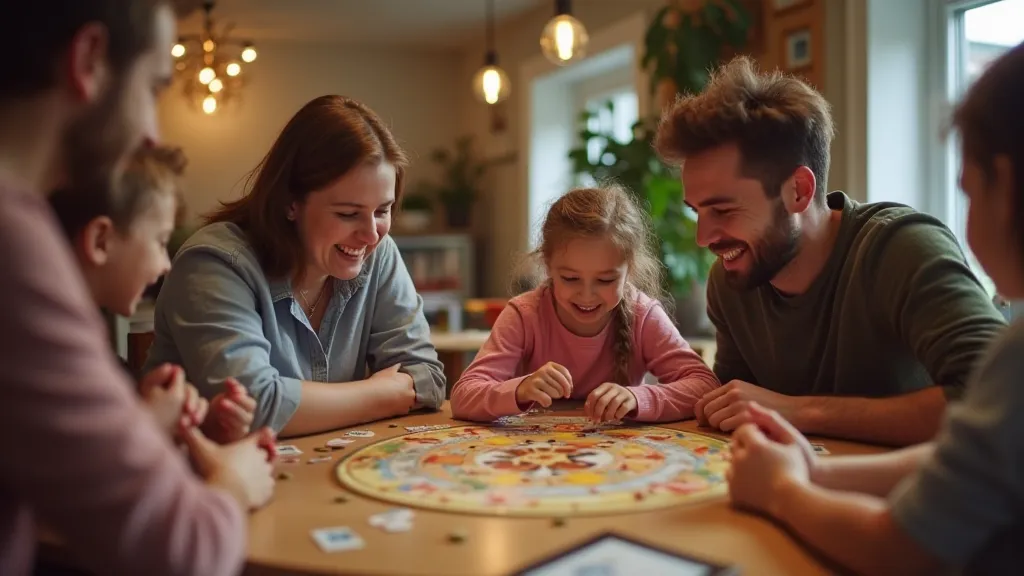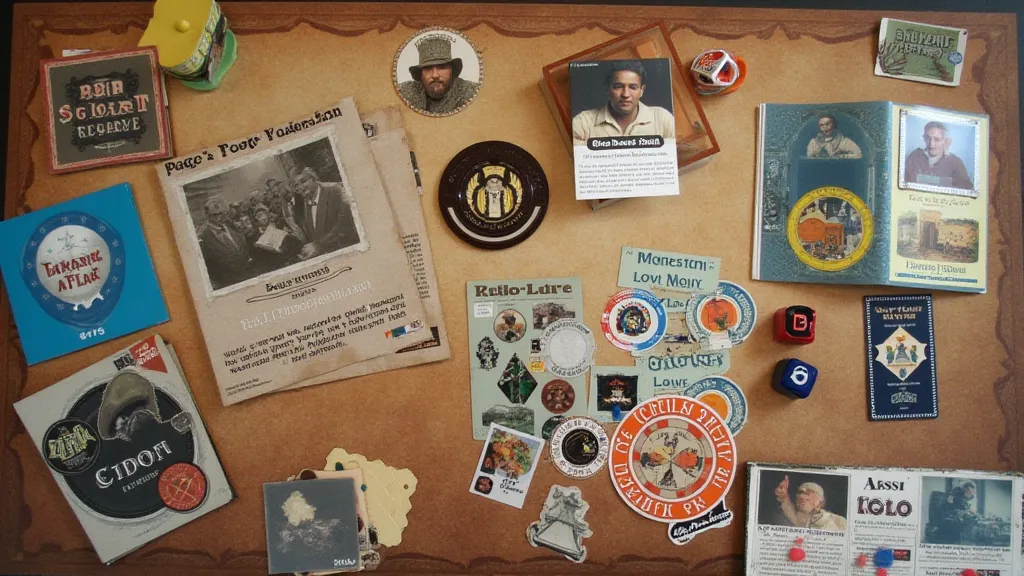The Rise of Legacy Games: Why They're So Addictive
For years, board games have offered a wonderful escape, a chance to connect with friends and family. But a relatively recent innovation has taken that experience to a whole new level: legacy games. These aren't your typical games that you can simply reset and play again. Legacy games evolve, permanently changing with each playthrough, creating a truly unique and deeply engaging experience. But what makes them so captivating? Let's dive into the fascinating world of legacy games.
What Exactly is a Legacy Game?
The core concept of a legacy game revolves around permanent changes. Think of it like a storybook you write as you play. You're not just moving pieces and rolling dice; you're making decisions that impact the game's rules, the board itself, and even the characters involved. These changes aren't easily reversible. Stickers are applied, cards are ripped, components are destroyed—all as part of the unfolding narrative.

The Implications of Permanent Changes
The permanence of changes is what truly sets legacy games apart. It fosters a sense of investment and consequence unlike any other tabletop experience. Every choice feels weighty, knowing that its effects will linger. This creates intense player engagement, as players are often collaborating to figure out the best path forward, both strategically and narratively. The unfolding story becomes a shared history, a chronicle of your gaming group’s choices.
However, this commitment also demands a certain level of dedication. You can't just casually play a legacy game; it’s a commitment. The experience is best shared with a group of dedicated players who are willing to see the game through to its conclusion. Consider who you're playing with before embarking on a legacy game campaign; a fractured group can lead to a frustrating experience. Choosing the right group is almost as important as choosing the right game itself. And speaking of games, many legacy game players enjoy the satisfaction of a collaborative experience. If you're new to cooperative games, exploring the Top 10 Cooperative Board Games You Need to Play is a great way to get acquainted with the genre.
Why Are They So Addictive?
The addictive nature of legacy games stems from several factors:
- Storytelling & Discovery: The narrative unfolds organically, driven by player actions. The feeling of discovery – what secrets will you uncover next? – is incredibly rewarding.
- Investment & Ownership: You feel a deep connection to the game as it evolves. It becomes your game, shaped by your decisions.
- Collaboration & Shared Experience: Legacy games often require teamwork and communication, strengthening bonds between players.
- Sense of Progression: Watching the game change and evolve, unlocking new content and abilities, provides a satisfying sense of progression.
Popular Legacy Game Recommendations
Ready to experience the legacy game phenomenon? Here are a few excellent starting points:
- Pandemic Legacy: Season 1: A cooperative game where you fight diseases that evolve and mutate, and your decisions determine the fate of humanity. A fantastic introduction to the genre.
- Gloomhaven: Jaws of the Lion: A simplified version of the epic Gloomhaven, offering a streamlined legacy experience with a rich fantasy world and challenging tactical combat.
- Clank! Legacy: Acquisitions Incorporated: A deck-building game with a humorous narrative where you build a corporation, complete quests, and battle monsters, all while permanently altering the game's world. For those intrigued by the deck-building mechanics at play in Clank!, understanding the broader Evolution of Deck-Building: From Dominion to Modern Classics can provide a deeper appreciation for the gameplay’s roots and evolution.

Beyond the Basics: The Design & Evolution of Legacy Mechanics
The initial spark of legacy gaming stemmed from the desire to create more than just replayable experiences. The first, groundbreaking legacy game, Pandemic Legacy, demonstrated the potential for emergent storytelling and player agency. But the genre hasn't remained static. Designers have continually pushed the boundaries of what a legacy game can be, experimenting with different approaches to permanence, narrative structure, and player interaction. Some games focus heavily on the narrative, presenting players with difficult moral choices that have significant consequences for the game world. Others prioritize strategic depth, with legacy elements impacting the gameplay mechanics in profound ways. And still others blend these elements, offering a rich and complex experience that rewards both storytelling and strategic thinking.
One interesting development has been the rise of "session legacy" games. These games offer a similar experience to traditional legacy games but are designed to be completed in a shorter amount of time, often across just a few sessions. This makes them more accessible to players who may not have the time or commitment for a full legacy campaign. Furthermore, the integration of digital components is becoming increasingly common, with some games using apps or websites to track progress, manage legacy elements, and even provide additional content.
The Community and the Future of Legacy Gaming
The legacy gaming community is a passionate and dedicated group. Players often share their experiences online, discussing strategies, speculating about future developments, and even creating their own legacy content. This vibrant community is a testament to the unique appeal of legacy games, and it's a valuable resource for players of all levels. The sharing of experiences and the discussions surrounding difficult choices within these games highlight a desire for more than just a game; they’re looking for a shared narrative experience.
Looking ahead, the future of legacy gaming is bright. As designers continue to innovate and push the boundaries of the genre, we can expect to see even more unique and engaging experiences. The trend toward shorter campaigns and the integration of digital components are likely to continue, making legacy games more accessible to a wider audience. Furthermore, we can anticipate a growing emphasis on player agency and emergent storytelling, as designers strive to create games that truly feel like a collaborative narrative adventure. The overall trend seems to be towards more specialized and niche legacy games, catering to diverse player interests and providing deeper, more focused experiences.
Choosing a Legacy Game: A Beginner's Guide
The sheer number of legacy games available can be overwhelming for newcomers. Here’s a few things to consider when choosing your first legacy experience:
- Theme: What kind of story do you want to tell? Choose a theme that genuinely excites you and your gaming group.
- Length: How much time are you willing to commit? Consider the length of the campaign and whether it aligns with your schedule.
- Complexity: How experienced are you with tabletop games? Choose a game with a complexity level that matches your skill set.
- Cooperative vs. Competitive: Do you prefer a collaborative experience or something more competitive? The nature of cooperative board games, and understanding what makes them tick, can be valuable even before diving into a legacy game. Resources like The State of Cooperative Board Games: Trends and Top Picks can help familiarize you with the nuances of the cooperative experience.






![Game News: Board Game Kickstarter Spotlight – [Project Name]](/thumbs/game-news-kickstarter-spotlight.webp)